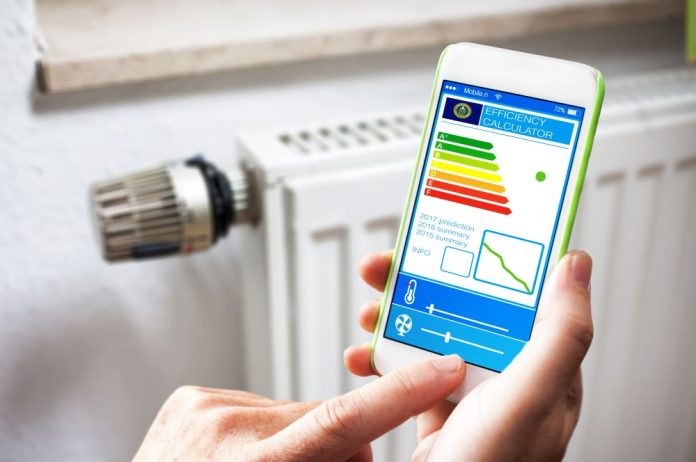Families with inefficient homes will be paying more than £700 a year extra in energy bills from October than more efficient properties, according to research.
Households in England and Wales living in the 19 million homes rated with an energy performance certificate (EPC) of D or below face an average bill increase of £1,730 per year.
This compares to an increase of £982 per year for those in the third of housing which meets the government’s target energy efficiency rating of C or above – leaving a staggering gap of £748, according to research by economics consultancy Cebr.
Typically houses with double glazing, good insulation, energy-efficient boilers and LED lighting receive a better EPC, with an A rating the best and G the worst.
These measures all help towards lowering energy bills by improving efficiency.
But the study, carried out on behalf of Kingfisher, the home improvement company which owns B&Q and Screwfix, has revealed a huge regional efficiency divide across Britain.
Homes in Wales, Yorkshire and the West Midlands – regions with some of the highest poverty rates – are set to be hit the hardest by rising bills due to having some of the least energy efficient properties in the UK.
In contrast, on average, Londoners have the most energy efficient homes.
Research reveals the nation’s worry
Thierry Garnier, Kingfisher CEO, said: “The UK’s housing stock is among the least energy-efficient in Europe, with UK homes losing heat up to three times faster than European neighbours.
“With a near £750 gap in bills between the most and least energy efficient homes, and homes responsible for around 20 per cent of the UK’s emissions, tackling this challenge has never been more important.
“Based on our experience working with governments in eight countries across Europe, we are proposing five practical policies that we believe would make a difference – helping households to cut both their energy bills and their emissions.”
The Cebr research comes after a survey of 2,000 adults revealed a staggering 84 per cent were already feeling the pressure on their finances from rising energy costs.
On average, they are currently forking out £131 a month on their gas and electricity bills, however that figure will rise sharply from October.
And October’s energy price cap rise was already weighing on the minds of 67 per cent.
Interest in energy efficiency measures increase
The current and looming pressures on finances have resulted in 61 per cent becoming more interested in improving the energy efficiency of their home.
So much so that 66 per cent would now pay more attention to the efficiency rating of a property were they to move than they would have previously.
Despite a growing interest in energy efficiency measures, only 40 per cent felt they could correctly identify what their EPC rating was.
And just 34 per cent plan to install energy efficiency measures in their property in the next 12 months.
Upfront costs (34 per cent), not knowing enough about the options available (32 per cent) and not being sure if it’s worth the investment (31 per cent) were the main reasons for not doing more.
But 55 per cent of those polled, via OnePoll, were unaware of any government schemes which aim to improve the energy efficiency of homes, while 66 per cent think the government should do more.
Among the measures people would like to see introduced are grants to fund or subsidise energy efficiency measures (64 per cent), interest free or low interest loans to fund installation (54 per cent) and cutting VAT to zero on all energy efficiency products (51 per cent).

